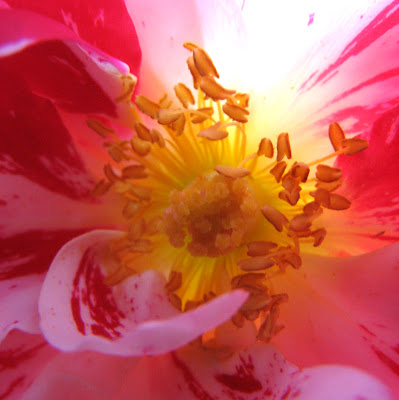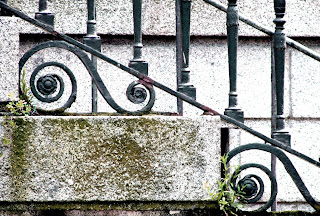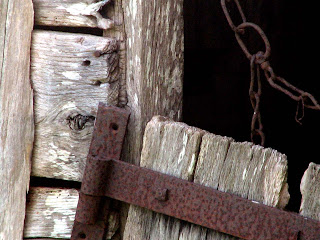Being wrong has formed your plans of travel
As often as being right. The unforeseen
Explains, in part, how hard it was to tell
Useful signs from those of superstition.
 You could blame limited intelligence
You could blame limited intelligenceFor errors of judgement and perception;
Admit that when, at last you arrived, chance
Played its part; that what you claimed as reason
Was wild surmise; that the choir, that captured
Your ear, was the wind buffeting the wire
That follows the road; that what you'd endured
Was for nothing, a worm wriggling in the fire;

That what you took to be the Holy Grail
Turned out to be just rags and scrap metal.
47.
The screens that show you, point by point, the track
Of you time and trouble across the globe,
Tell you where you were right and wrong, and stack
Up all your hopes into a flashing strobe.
Yet, if you believe the technology
That enters into every corner
Of your experience and geography,
You will have nothing left to call your own.

Better to look for faults there, too, which race
To reach an unexpected conclusion;
Ambiguities, which suggest one face
For another, challenge beliefs and strain
To restore to a healthy, fractious state
The near chaos you movements generate.
48.
To sum it up neatly, is to close it down:
The story of your travels doesn't end,
And you can't be certain where it began.

The daft voices of your forebears, behind
Your striding shadow, chatter in your brain,
Say: "Keep on this way; one day you'll learn to fly;
The Pleiades will be your destination."
You have the gift of curiosity,
And nothing you meet on the road is less
Than significant; if you look close enough,
Written on each stone you pass is "press"
Or "open";...

...you hear "come in" in each puff
Of wind; a door's half open, always set
To halve the gap, halve that, and halve, half that.
49.
There were things you ahd to dig for on sites
By the road. ...

Except an inborn sympathy for rites
Practised long before your time, private,
Magical, no longer comprehensible,
But prompted by urges bred in desert,
Forest, cave - the birthplaces of evil,
And of what was good, also, from the start,
Original virtue; this collect too,
Should be Adam's banner, Eve's song of joy -
Not to neglect the animal in you.

The falcon on your gauntlet, thoughts of prey,
Memories of scales and fur, bones piled up,
Strike you with a rhythm that just won't stop.

50.
To look back at all the faults and failures,
Which have led you to this curious place,
Might keep you occupied for years;
Or else be worth a quick laugh, without trace
Of regret or homily, and no text
Drawn from stale notes, no sums or stately sermon.
At best, you can admit you were perplexed,
Still are, by the meagre spread of reason
In the country you know best. Facts are scarce,
Too, in these parts and hard to verify;
The noise of opinion is continuous.
You think, now you're back, it was worth a try;
You say, " I've moved, not far from where I was,
But enough to see how the distance grows."

























.JPG)














 The current is so fast, you'll lose the art
The current is so fast, you'll lose the art Clutch at passing sticks; turn head-over-heels
Clutch at passing sticks; turn head-over-heels In time, perhaps the incidence of petals
In time, perhaps the incidence of petals In a rose; how close the great is to the small;
In a rose; how close the great is to the small;

.JPG)
